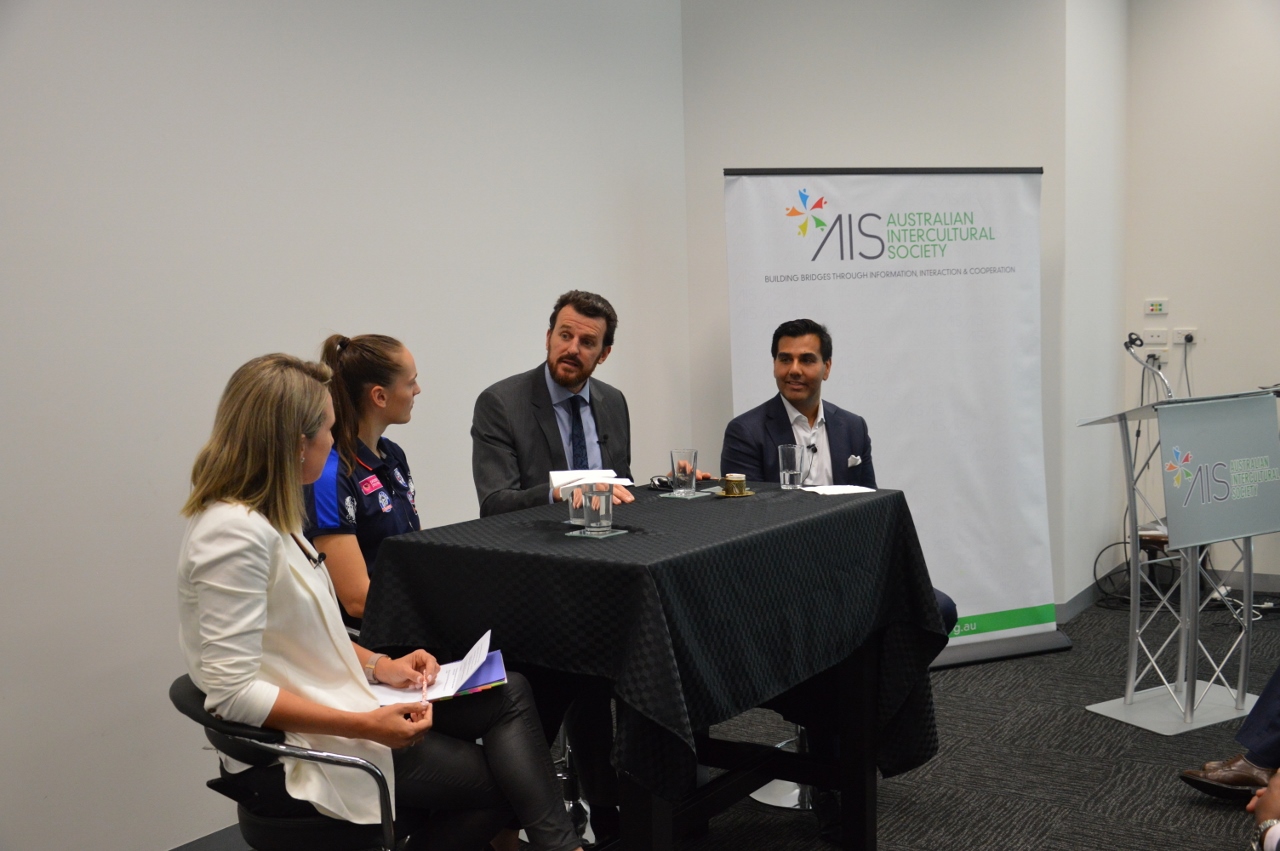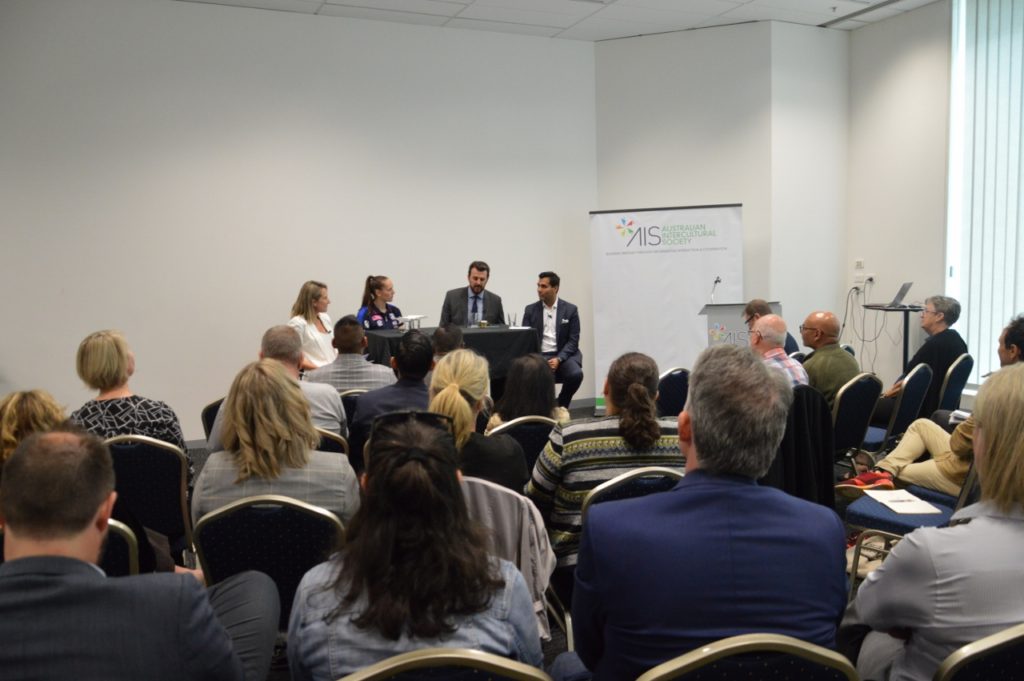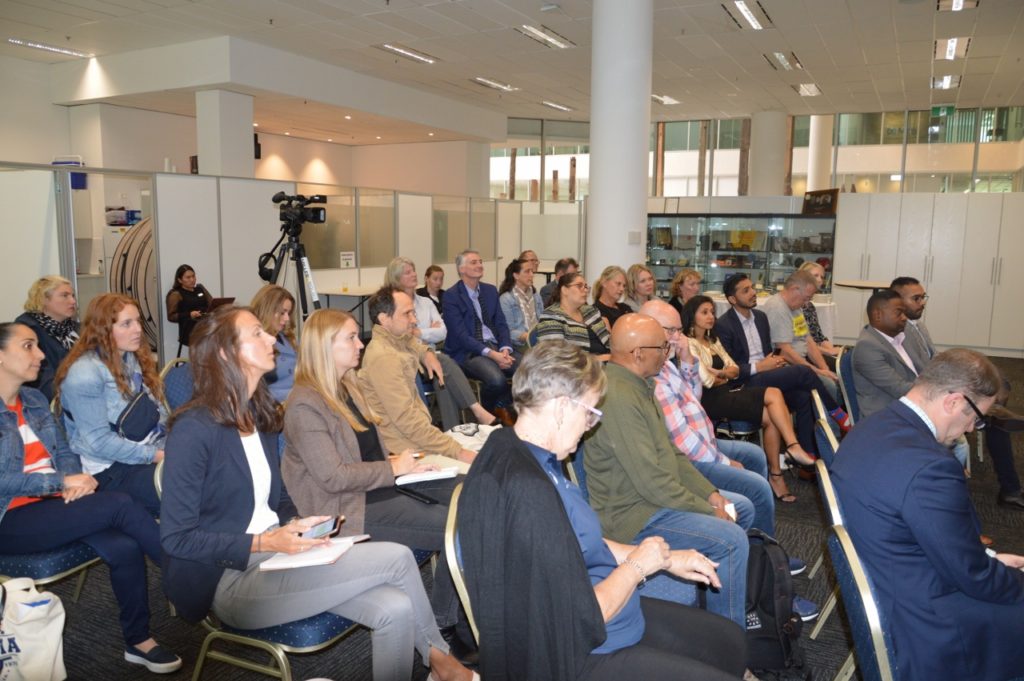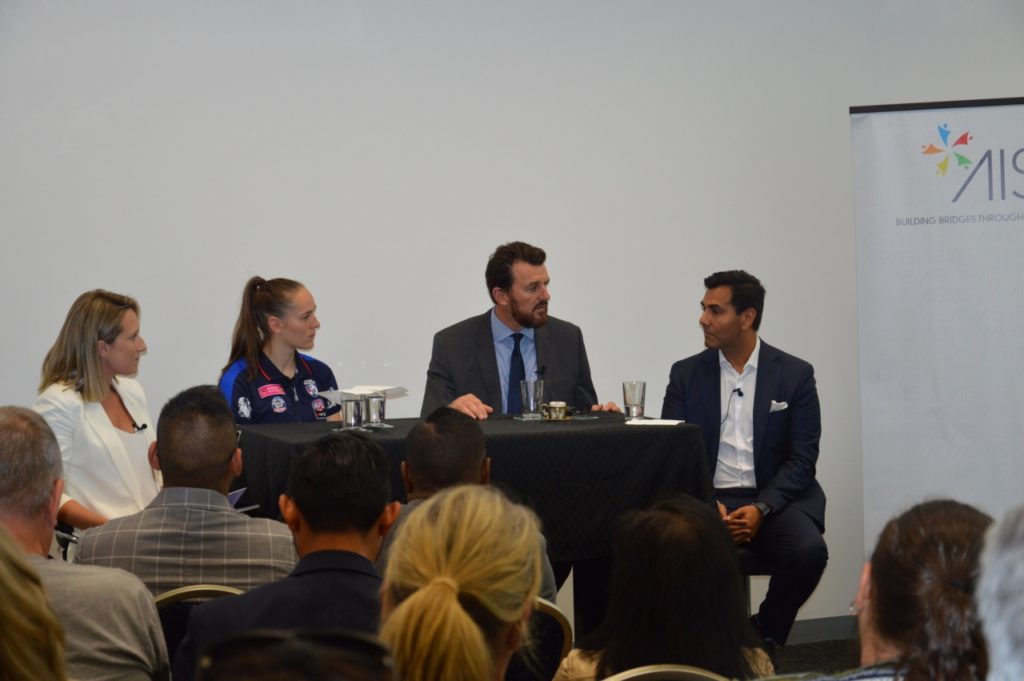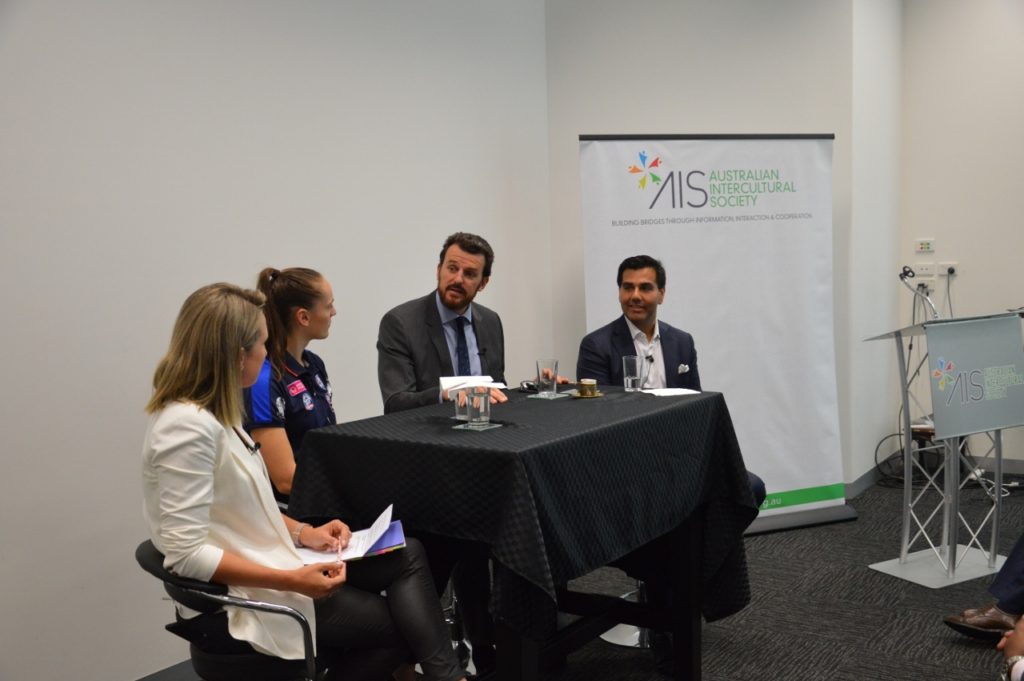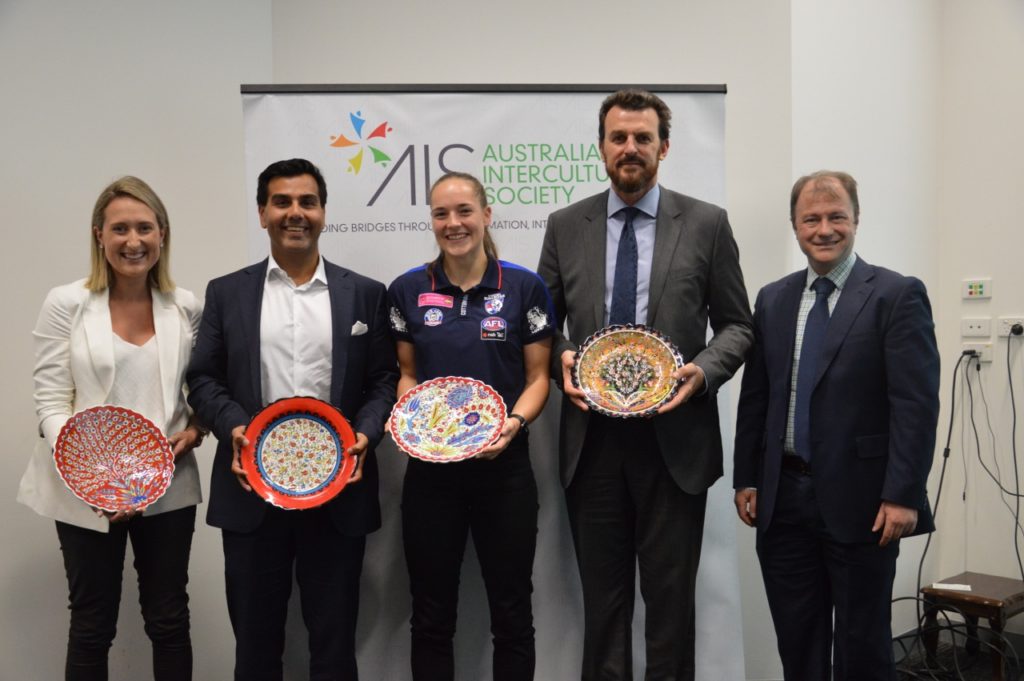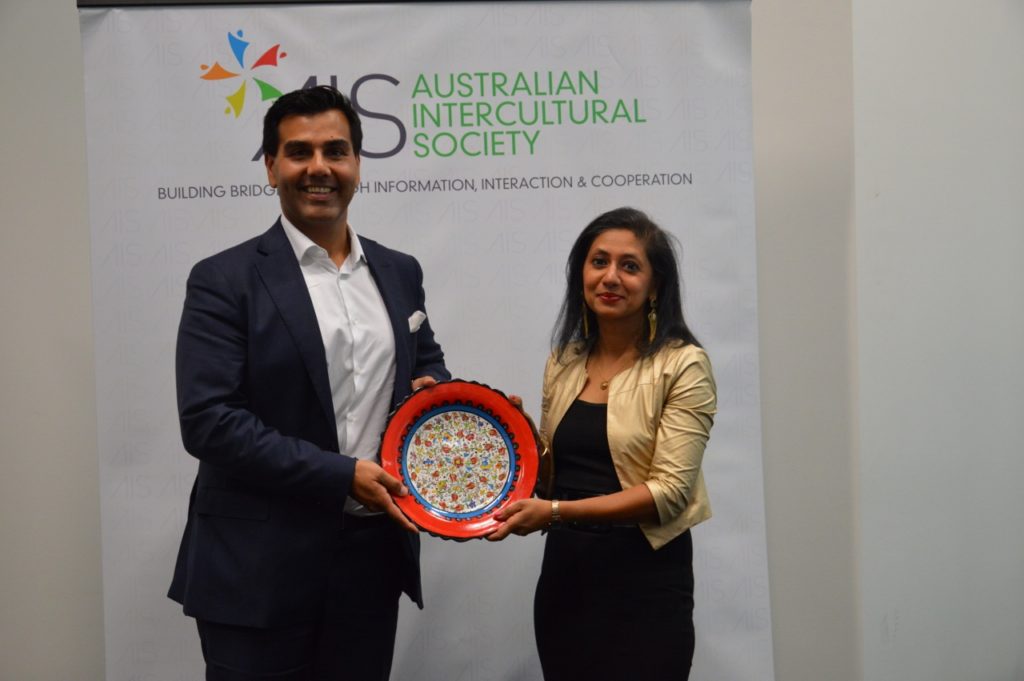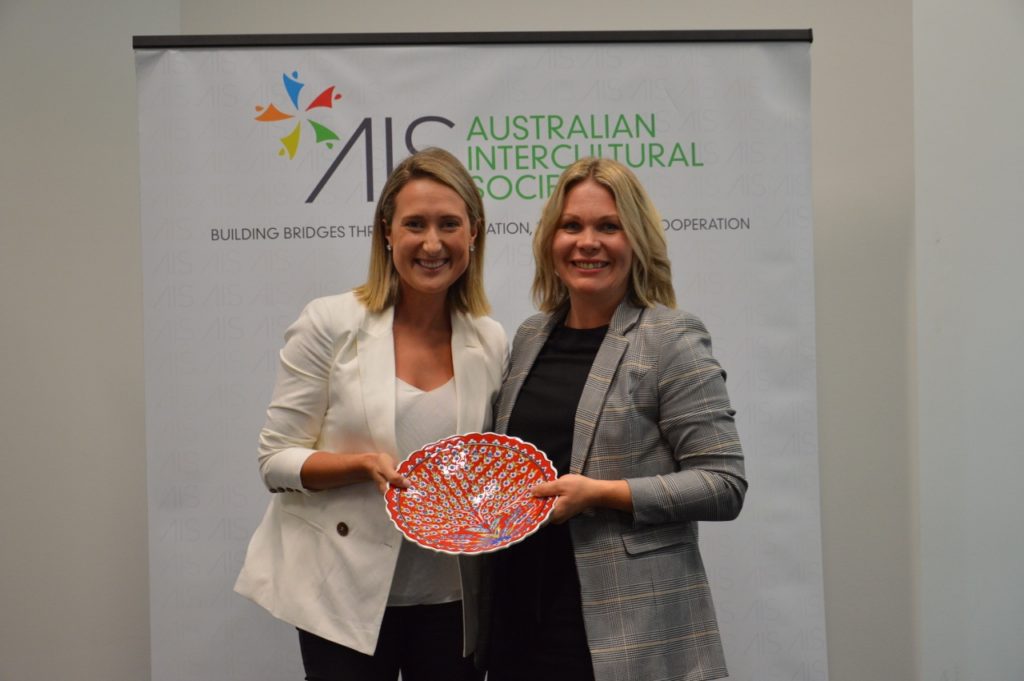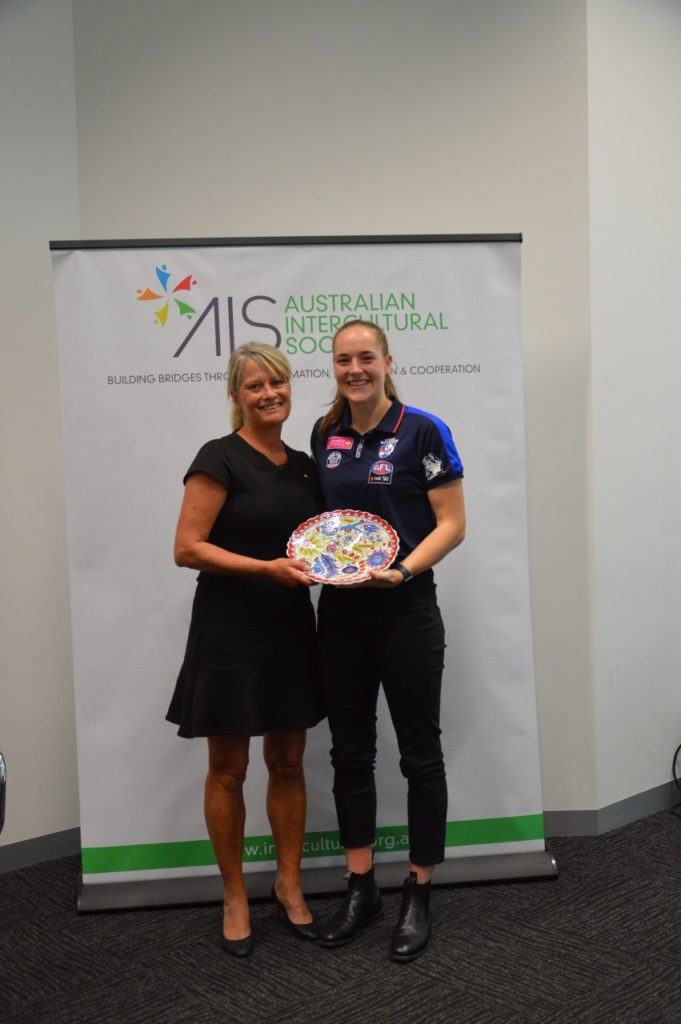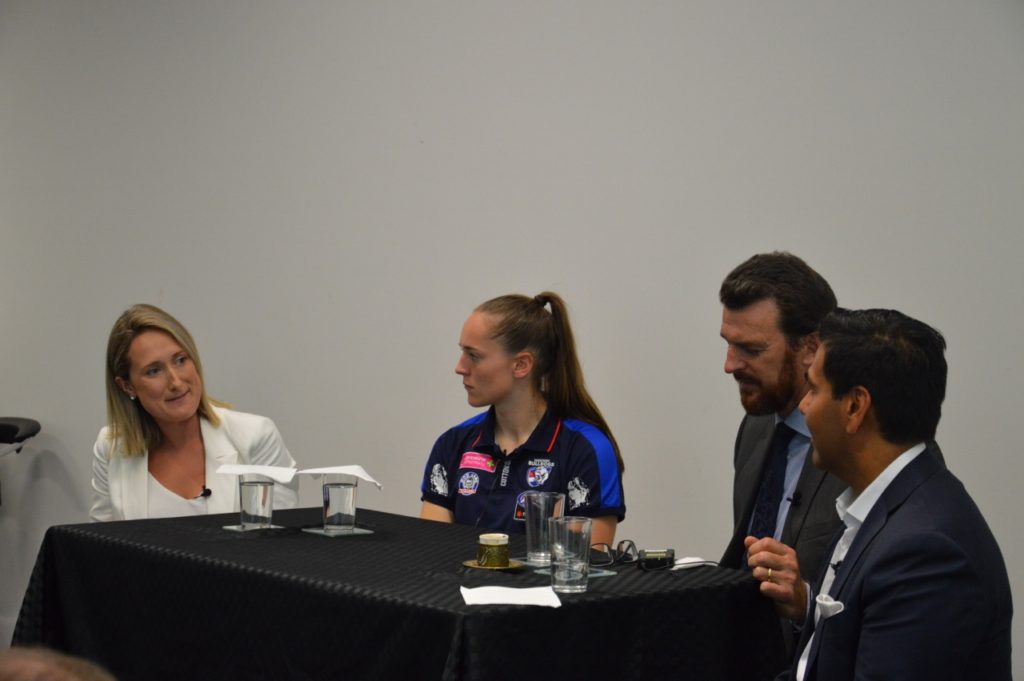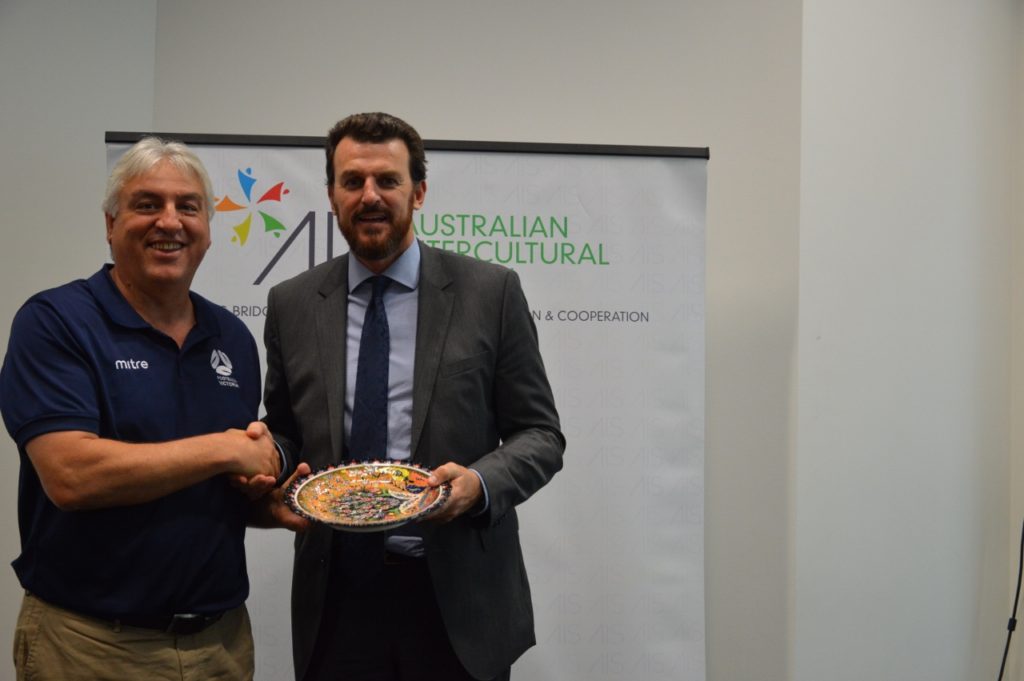Beyond the Boundary: Different Colours. One Goal.
‘Beyond the Boundary: Different Colours and One Goal’
A report written by AIS intern Dewirini Anggraeni
The Australian Intercultural Society (AIS) hosted a discussion about ‘Beyond the Boundary: Different Colours and One Goal’ on 27 February 2020. The panel speakers were Brendan Gale the CEO of the Richmond Football Club, Ameet Bains the CEO of Western Bulldogs Football Club and Isabel Huntington AFLW player of the Western Bulldogs Football Club. The discussion was moderated by Lauren Wood, a sports journalist who writes about the AFL and AFLW for the Herald Sun and host of Women’s footy on Channel 9. The discussion was participated by 40 people from various backgrounds.
The discussion started by a question about diversity involvement in the football clubs as the key focus. Brendan stated “We live in differences; these football clubs are not for business and not for profit. The games that we do is for entertainment, which is a rapidly changing marketplace. Therefore, we embrace diversity beyond religions, races and genders”. Ameet added the response to this statement, “It is important to celebrate diversity and leadership. We are multicultural as a national asset and the values among us strengthen our community in the match”. The focus of football competition now is to connect community. Moreover, the community foundation is a primary vehicle to build social cohesion among diversity.
Based on Isabel’s personal experience, she said that she believed people may gain many opportunities through sports. In particular, football can connect people. She believes that sport is a real driver to create change. She explained “I come from a very fortunate background. It is really bringing me to understand and be thankful that I’ve been given such an opportunity to give back and help serve the community”.
The discussion continued to the next question about challenges that football clubs have in the community. Brendan and Ameet described that there are many challenges that club face including; funding, broadening the community and finding opportunities in this space. They believed that there are learnings that they can take as lesson if they can create growth in this environment. Then, the moderator responded with the next question about things to improve in football clubs. Ameet said “By having more experience we can support some multicultural aspects including education, religion and exposure in women football, so that, we can help people to really experience it”. Brendon pinpointed that politics and social issues were recognised as challenges in football clubs. Isabel responded that different backgrounds emerged within football players, she hopes that AFL give opportunity for both man and woman to have equal opportunity.
The moderator led the discussion into the next question of how can we improve and what particular aspects do we want to be better in? “There is a set of norms that can encourage people in recognising differences and creating positive environment” Brendon answered. Ameet added that the Western Bulldogs community foundation creates programs that provide students space to gain experience from community and social inclusion. AFL clubs are driving these beneficial programs into the community space. This is including different approaches in football clubs every week and creating a safe environment for everyone.
What’s next? Where do you see in the future? The moderator asked the three panellists. Isabel responded “Since we will play in the competition beyond genders, I think it’s going to be a good turning point. In terms of multiculturalism, AFLW have a lot improvement on integrating football and changing the perception that everyone is welcome in the games. We involve every sexuality, even from LGBT”. Ameet answered “Despite political issues and a social shift, we require a change in the county’s football nature. This is aimed to bring the leadership into phenomenal growth”. Additionally, Brendon said “football clubs are the reflection of our communities. We need to embrace people from different communities”.
For more information on the panel, see the video and photos below.

